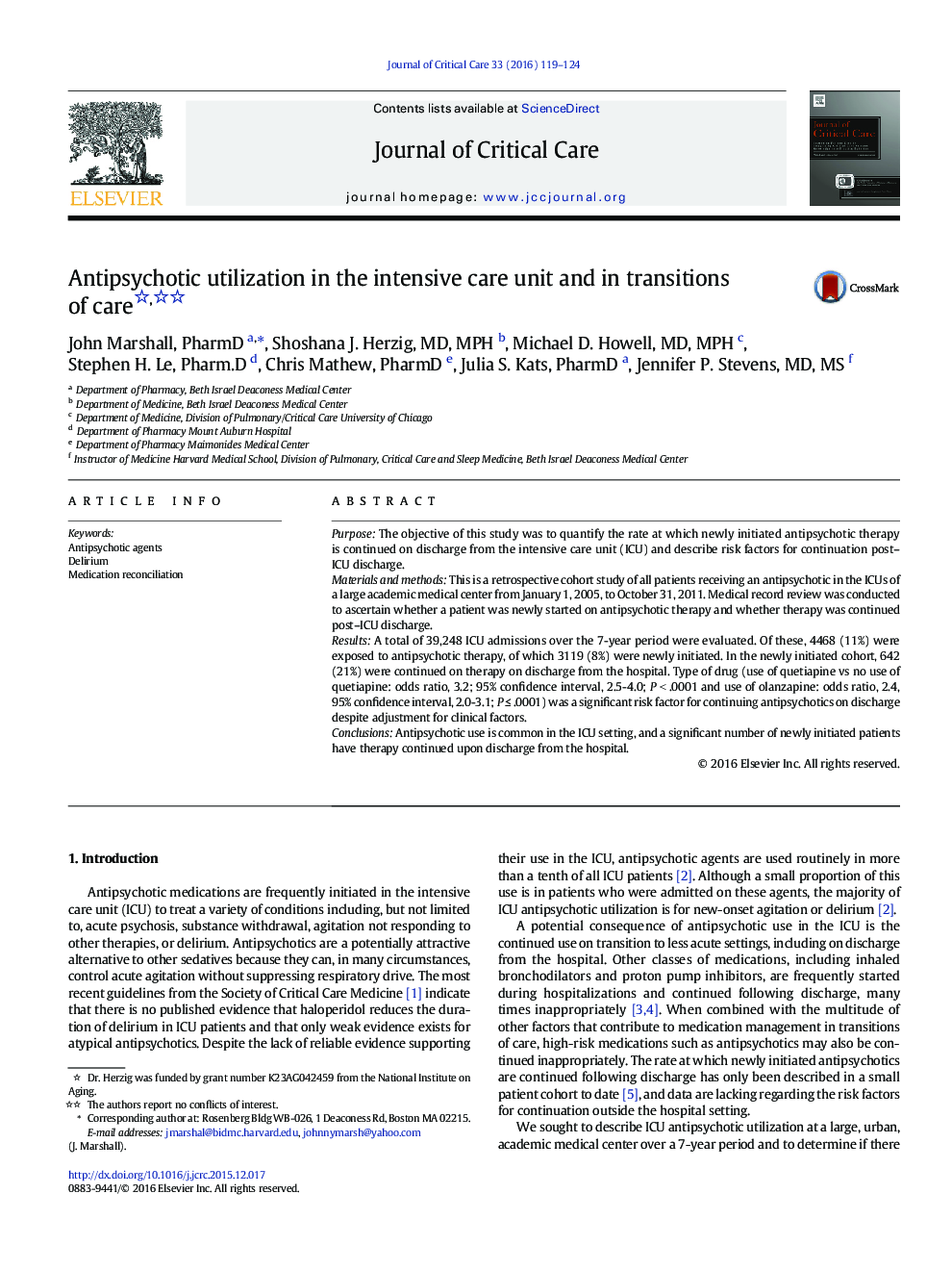| Article ID | Journal | Published Year | Pages | File Type |
|---|---|---|---|---|
| 2764331 | Journal of Critical Care | 2016 | 6 Pages |
PurposeThe objective of this study was to quantify the rate at which newly initiated antipsychotic therapy is continued on discharge from the intensive care unit (ICU) and describe risk factors for continuation post–ICU discharge.Materials and methodsThis is a retrospective cohort study of all patients receiving an antipsychotic in the ICUs of a large academic medical center from January 1, 2005, to October 31, 2011. Medical record review was conducted to ascertain whether a patient was newly started on antipsychotic therapy and whether therapy was continued post–ICU discharge.ResultsA total of 39,248 ICU admissions over the 7-year period were evaluated. Of these, 4468 (11%) were exposed to antipsychotic therapy, of which 3119 (8%) were newly initiated. In the newly initiated cohort, 642 (21%) were continued on therapy on discharge from the hospital. Type of drug (use of quetiapine vs no use of quetiapine: odds ratio, 3.2; 95% confidence interval, 2.5-4.0; P < .0001 and use of olanzapine: odds ratio, 2.4, 95% confidence interval, 2.0-3.1; P ≤ .0001) was a significant risk factor for continuing antipsychotics on discharge despite adjustment for clinical factors.ConclusionsAntipsychotic use is common in the ICU setting, and a significant number of newly initiated patients have therapy continued upon discharge from the hospital.
Graphical abstractFigure optionsDownload full-size imageDownload high-quality image (44 K)Download as PowerPoint slide
